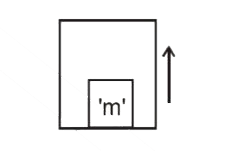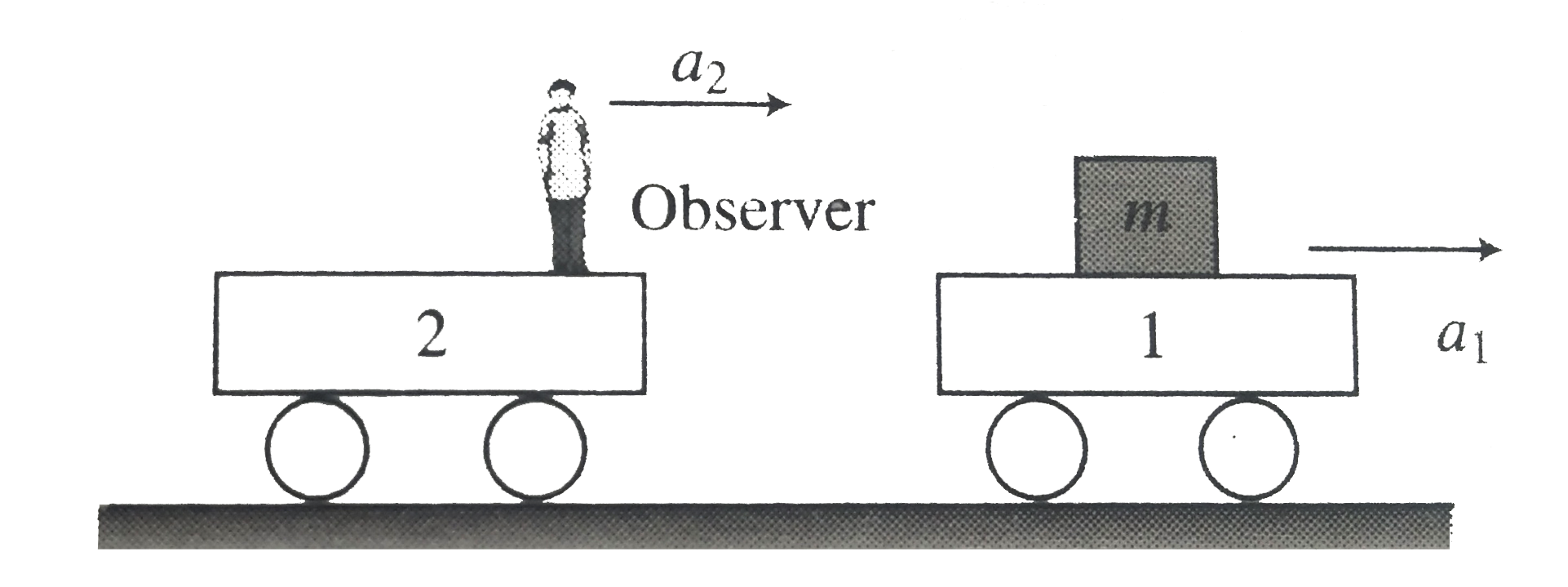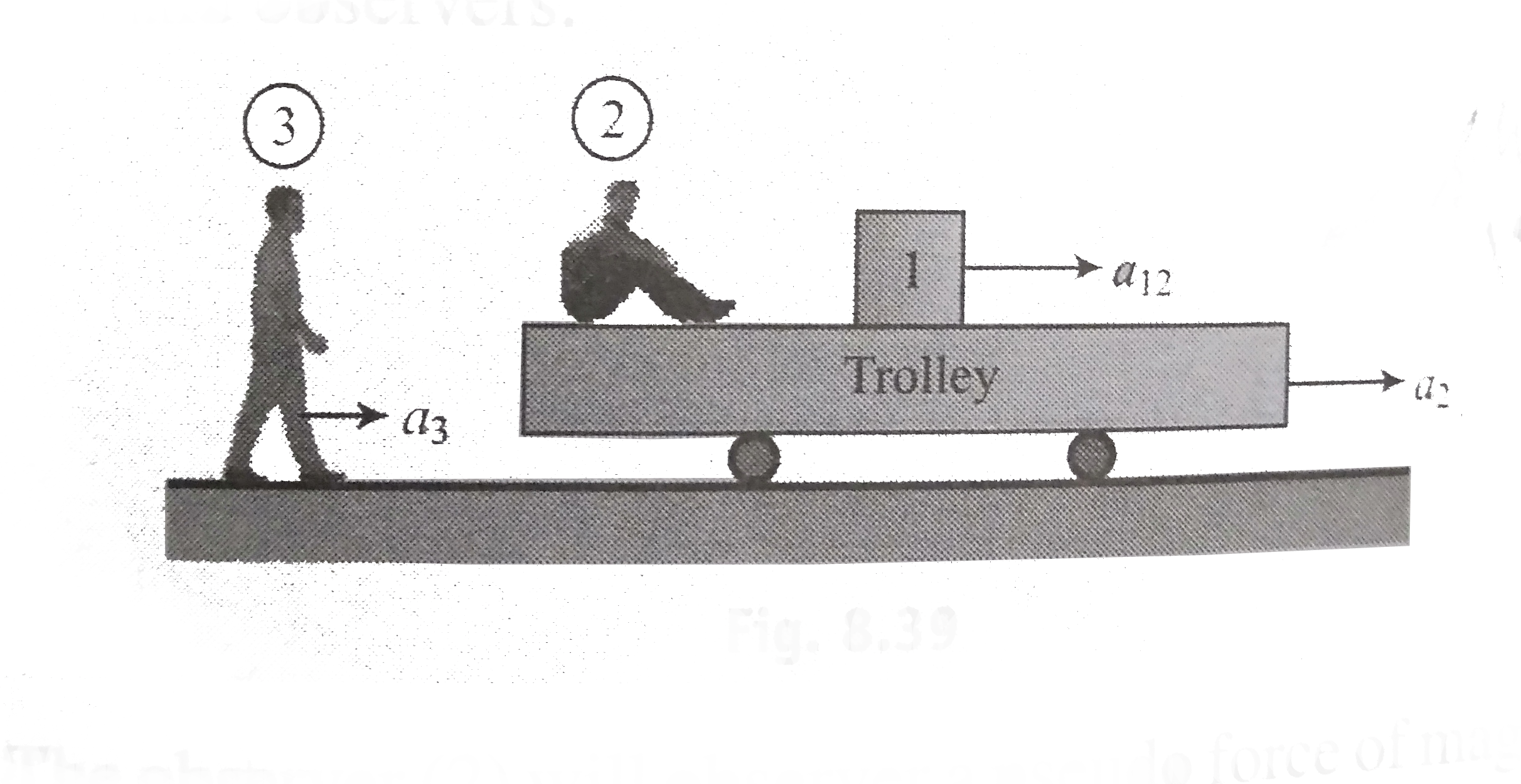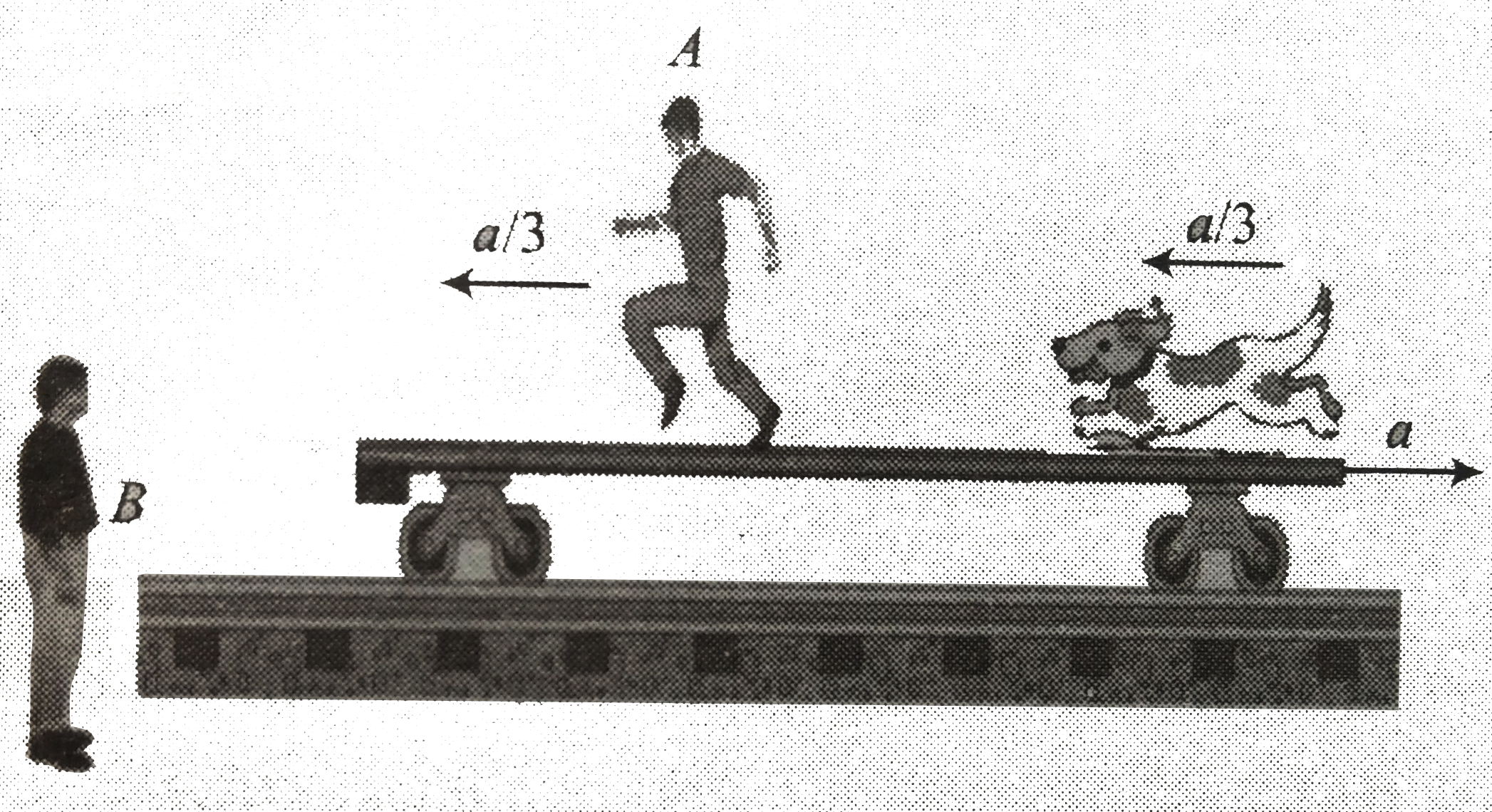Two trolleys A and B are moving with accelerations a and 2a, respectively, in the same direction. To an observer in trolley A. Find the magnitude of the pseudo force acting on a block of mass m on trolley B.

Pseudo force=ma in backward direction.
Topper's Solved these Questions
- NEWTON'S LAWS OF MOTION 1Book:CENGAGE PHYSICSChapter:NEWTON'S LAWS OF MOTION 1Exercise:Exercise 6.3
Explore 19 Videos
- NEWTON'S LAWS OF MOTION 1Book:CENGAGE PHYSICSChapter:NEWTON'S LAWS OF MOTION 1Exercise:Exercise 6.4
Explore 13 Videos
- NEWTON'S LAWS OF MOTION 1Book:CENGAGE PHYSICSChapter:NEWTON'S LAWS OF MOTION 1Exercise:Exercise 6.1
Explore 11 Videos
- MISCELLANEOUS VOLUME 2Book:CENGAGE PHYSICSChapter:MISCELLANEOUS VOLUME 2Exercise:INTEGER_TYPE
Explore 10 Videos
- NEWTON'S LAWS OF MOTION 2Book:CENGAGE PHYSICSChapter:NEWTON'S LAWS OF MOTION 2Exercise:Integer type
Explore 1 Video
Similar Questions
A box is moving upward with retardation 'a'<g, find the direction and magnitude of "pseudo force " acting on block of mass 'm' placed inside the box.Also calculate normal force exerted by surface on block

View SolutionTwo trolleys A and B are free to move on a level frictionless track, and are initially stationary. A man on trolley A throws a bag of mass 10kg with a horizontal velocity of 4ms−1 with respect to himself on to trolley B of mass 100kg. The combined mass of trolley A (excluding bag) and the man is 140km. Find the ratio of velocities of trolleys A and B, just after the bag lands on trolley B.
View Solution
Knowledge Check
Two trolley 1 and 2 are moving with acceleration a1 and a2 respectively, in the same direction. A block of mass m on trolley 1 is in equilibrium from the frame of observer stationary with respect to trolley 2. the magnitude of friction force on block due to trolley is (assume that no horizontal force other than friction force is acting on block).
 Am(a1−a2)Bma2Cma1DData insufficient
Am(a1−a2)Bma2Cma1DData insufficientA trolley is moving with velocity v1 in the horizontal direction . A bullet is fired from his trolley in the upward direction with a speed v2 . Observer is standing on the ground and observes the bullet to be moving in a parabolic path. What will be the range of projectile ?
A2v1v2gB2v21gC2v22gDv1v2gA trolley moves in horizontal direction with an acceleration a. A simple pendulum of length l is suspended from the roof of the trolley. The time period of the pendulum will be
AinfinityBzeroC2π√l(g+a)D2π√l√a2+g2
A man of mass m is standing on a lift which moves down with an upward acceleration a. Find the pseudo force acting on the man as observed by himself. Find the pseudo force acting on the man if the lift falls freely.
View SolutionA block of mass m1 moves with an acceleration a12 relative to a trolley as shown in figure. The block is being observed by two observers (2) and (3). The observer (2) is at rest with respect to trolley which is moving with acceleration a2 while the observer(3) is moving on ground with acceleration a3. What is the work done by the pseudo force as observed by the observers (2) and (3) on the block during time t? Assume zero intial velocities of the bodies and observers.

View SolutionA block of mass 5 kg is acted upon two perpendicular force 7 N and 24N. Find the magnitude and the direction of acceleration of the block.
View SolutionA rail-road car is moving towards right with acceleration a. A man accelerating toward left with an acceleration of magnitude a/3 w.r.t to car. A dog of mass m is following man A with an acceleration a/3 relative to the car. Observer B on ground is observing the dog and man A. Find the
(a) net force experienced by the dog as seen by observer B standing on ground.
(b) rate of change of linear momentum of the dog relative to the man A moving on trolley.
(c ) pseudo-free on the dog as seen from man A.

View Solution

Suppose you are sitting on an accelrating trolley car.
(i) Find the pseudo force action on the block of mass m placed on the trolley car.
If the block is placed (or moved) outside the trolley car, and an external force F acts in horizontal direction.
(ii) Find the pseudo force acting on the block as viewed by the observer.
(iii) Find the acceleration of the block as seen by the obersever
View Solution

